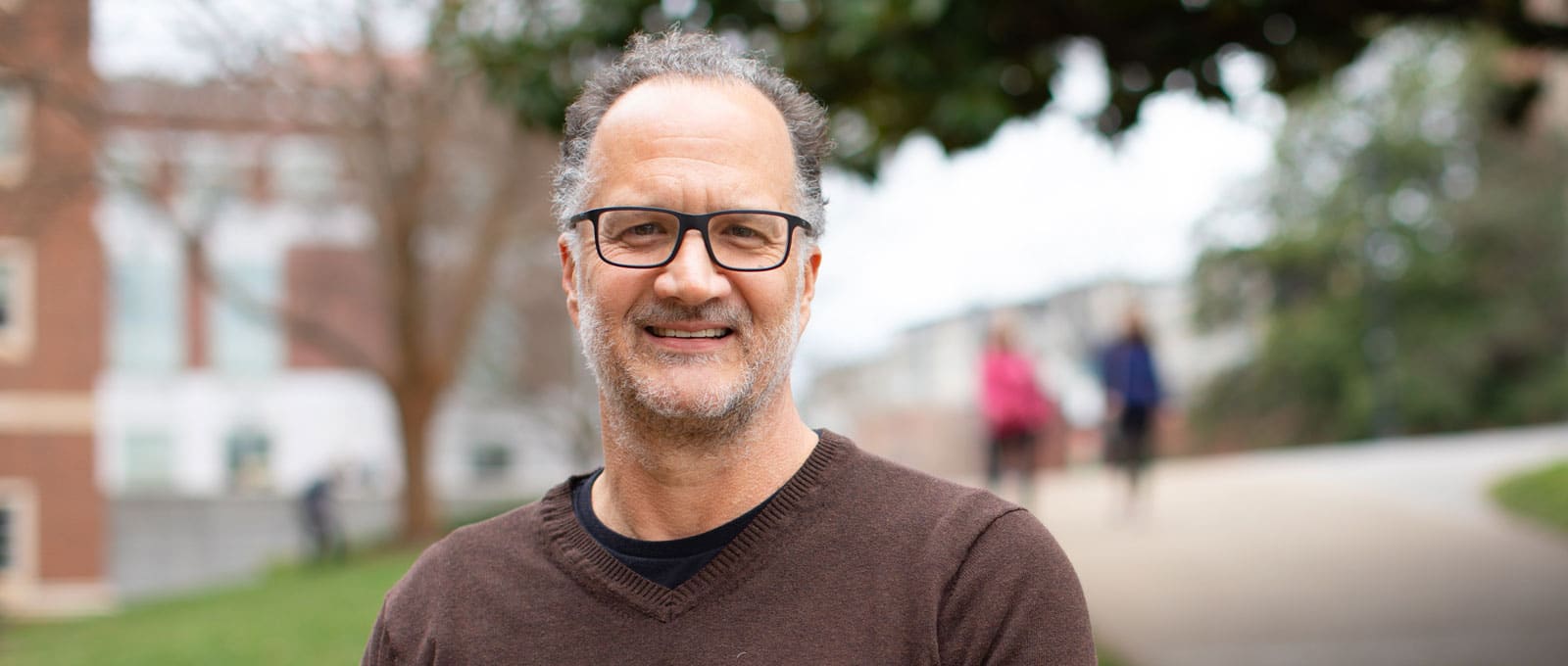
Michael Mason is conducting substance-use research with the Betsey Bush Endowed Professorship.
Professor Michael Mason’s idea for communicating with 18 to 25 year olds with identified cannabis-use disorders is to text them—not to berate them but to ask questions, such as, “How is it going today?,” and “Who are you interacting with today?”
With funding from a National Institute for Drug Abuse grant, Mason is conducting a randomized clinical trial four-week test of 500 subjects with problematic marijuana use in Knoxville, where marijuana is illegal, and 500 in Fort Collins, Colorado, where it is legal. It is the largest study ever that asks whether this kind of intervention works.
Raised in Scottsdale, Arizona, Mason got his bachelor’s degree from Pepperdine University and his master’s at San Diego State, where he shadowed a young and energetic researcher named Jim Hall. “He was doing group interventions with adolescents in a hospital clinic,” says Mason. “I thought, ‘This is something I am attracted to. It’s creative and helps people, and it has an analytics and science side.’” After earning his PhD at Oregon State, Mason had a National Institute of Mental Health postdoctoral research fellowship at the prestigious Johns Hopkins School of Public Health.
When UT’s Center for Behavioral Health Research recruited him, Mason was an associate professor of psychiatry and director of the Commonwealth Institute on Child and Family Studies at Virginia Commonwealth University’s School of Medicine.
It allows me some flexibility to support students to be part of the research. It also helps us develop and support pilot studies and purchase equipment in between grant funding.
– Michael Mason, recipient of the Betsey Bush Endowed Professorship
The Betsey Bush Endowed Professorship made UT’s job offer even more attractive since the endowment would allow Mason to be a full-time researcher. “It helped me do pilot studies at Tennessee that showed that our methods were effective,” says Mason. “We put those results in the next grant application, which led to the NIDA grant.” The professorship helps Mason in other ways, too. “It allows me some flexibility to support students to be part of the research. It also helps us develop and support pilot studies and purchase equipment in between grant funding.”
Mason has received national attention for his substance-use research, which sees substance use as a social practice within the routine social environment of individuals’ lives. If substance use exists in the social environment, that is a good context for addressing it. And text-delivered counseling had been shown to be effective.
“It feels very natural,” says Mason. “Ten texts every other day for 16 days. Our texts are full of evidence-based messaging, asking questions like, ‘Tell us how you’re doing?,’ ‘Reflect on your current use,’ and ‘What are your goals after graduation?’”
“Some want to stop. We have them develop modification or reduction plans to reach their goals. It provides motivation and ways and structures to handle the stresses and strains of their lives. It’s important for our communications to be nonjudgmental. There’s a body of research showing that the more I tell you to stop, the worse results you have. It works better to be more accepting.
“When you ask questions like, ‘What do you like about using?,’ they articulate the reasons why they want to use and why they want change their behavior in the future. We try to activate their own motivation, their own observations about how much they’re using compared to others.”
“A big focus is on peer relationships—who you hang out with, when you hang out, where you hang out. It seems to be potent for them to reflect on these things and, perhaps, realize for themselves, ‘I guess I am hanging out only with daily users.’
“We might suggest small modifications—like hanging out with the same people in a different setting or maybe spending a little more time with nondaily users.”
Mason is also working on an opioid prevention project with 69 pairs of teenagers and their parents from Cherokee Health Systems, discussing risk factors, healthy lifestyle choices, and peer environments. Initial results show reductions in depression and anxiety symptoms among adolescents and improved adolescent–parent relationships, all of which are protective factors against substance use.
